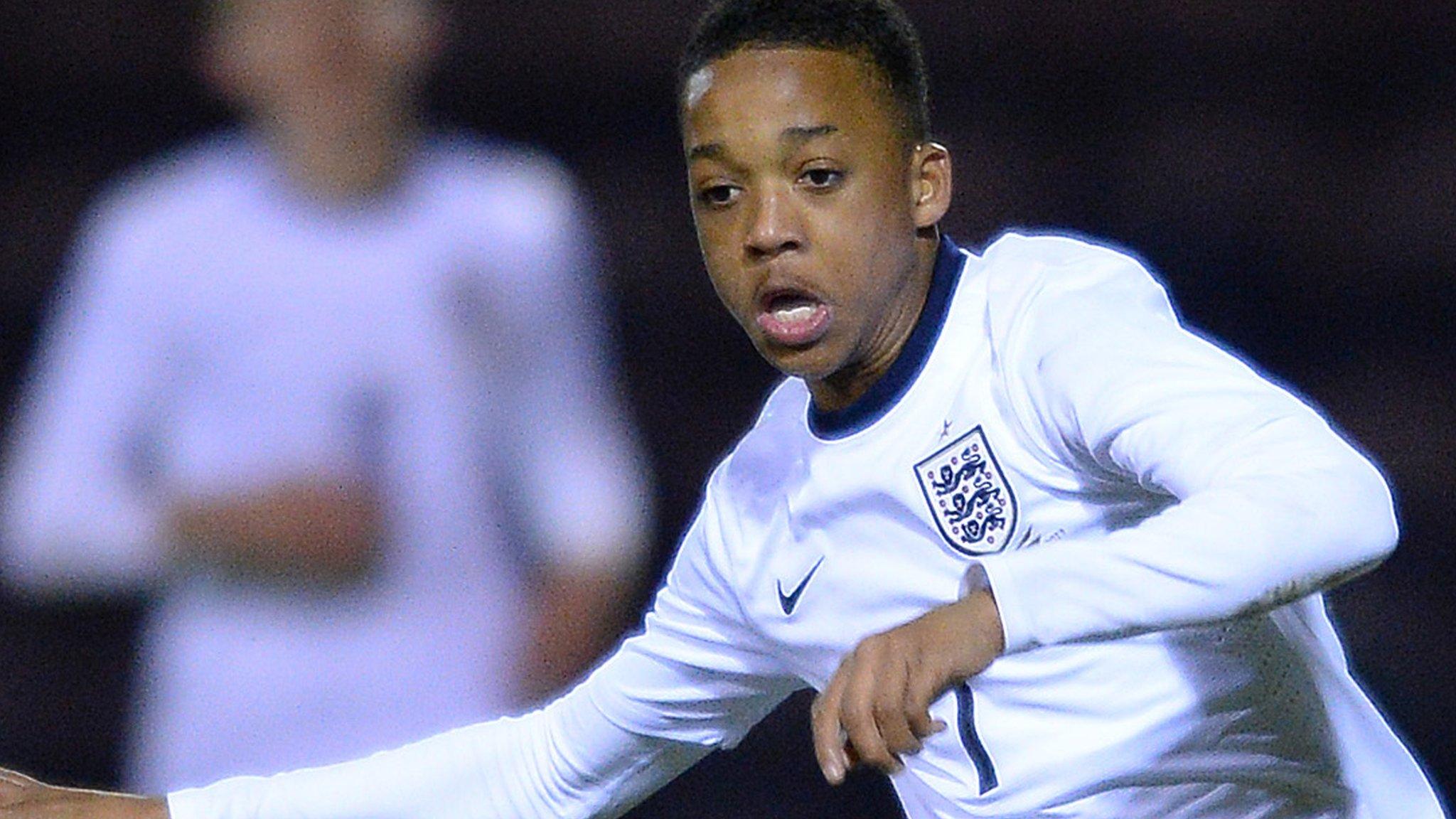Danny Collinge: VfB Stuttgart's Englishman 'never questions' move to Germany
- Published
- comments
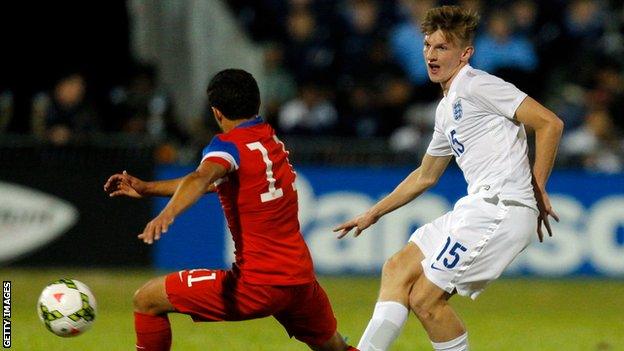
Danny Collinge was spotted by VfB Stuttgart while playing for England at youth level
While we have become accustomed to foreign teenagers moving thousands of miles away from home to England in stockpiled Premier League academies, the reverse is somewhat of a novelty.
The widely-accepted narrative goes that English youngsters are too mollycoddled to risk a move abroad and, when they do reach the age for first-team football, they are happier settling for a place on the bench at a club near home.
But, while 17-year-old Jadon Sancho made headlines after swapping Manchester City for Borussia Dortmund on transfer deadline day, there is already a little-known Englishman barely spoken of in his home country trying to break through in the German Bundesliga.
And a trawl of the internet does not shed much light on him either.
"I'm glad you can't find so much information about me," VfB Stuttgart defender Danny Collinge told BBC Sport.
"In Germany, young players hardly get any media attention. Players can focus on their football, focus on their development and not get caught up in the hype and attention.
"I appreciate my freedom to just concentrate solely on football, which I realise is a bit contradictory given I'm doing an interview now."
Education, education, education
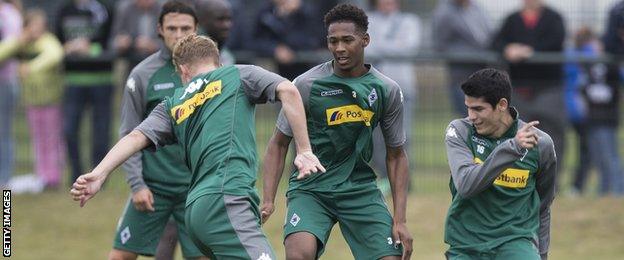
Reece Oxford (centre) training with Borussia Monchengladbach, where he was sent on loan by West Ham this summer
Collinge has seen his fellow countrymen follow in his footsteps this summer, having been joined in the German Bundesliga by Reece Oxford and Kaylen Hinds, while most recently Sancho joined Borussia Dortmund.
While these players had fully graduated through an English club's academy system, Collinge's journey to the continent began in 2014, as a 16-year-old who had just finished his GCSEs.
The England youth international was playing for MK Dons - the club that developed England international Dele Alli - and had been offered a two-year scholarship.
But for Collinge there was one drawback - he wanted to study A levels, something very few clubs in England offer the chance to do.
"I wanted the opportunity to pursue the educational side of my life because that's something I value dearly," said the now 19-year-old. "School has always been something I was quite good at and I wanted to always have a plan B.
"In England that opportunity wasn't there for me, but in Germany I was given the opportunity to go to an international school and study for an International Baccalaureate., external That would secure me a good back-up plan if football didn't work out for me."
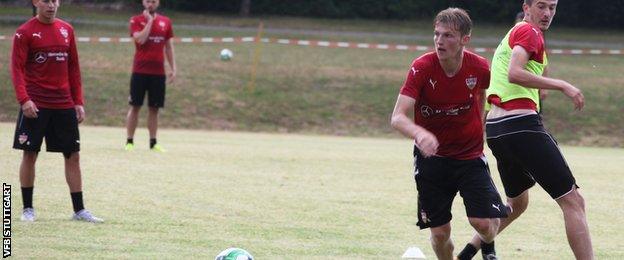
Danny Collinge has yet to play a first-team game for VfB, and will begin this season playing for their reserve side in the German equivalent of England's League Two
A lot of what is on offer comes down to a matter of timetabling.
Clubs in England have built a system where youngsters do a BTEC or advanced BTEC as a group, usually in-house, which allows the club to fit studies alongside their rigorous youth-team training schedules.
If one or two youngsters want to do A Levels, they have to go into outside schools or colleges, where lesson timings rarely fit in with that training regime.
It is, therefore, no surprise that it is uncommon for young players to do no more than one or two A Levels, much of which will be in their spare time and at clubs that can afford to spend that little more money.
But Collinge, who would go on to get results of eight A*s, three As and one B in his GCSEs, believes clubs need to be more adaptable.
"There's not one right way to treat every single player," he said. "Some players will need mental stimulation and others are just happy playing their football.
"I think we need to be able to accommodate for each different type of player, rather than put every single player down this one track.
"It's about ensuring everyone finds the right pathway outside of football when their career does come to an end."
'Are you sure you want to do this?'

VfB last won the Bundesliga in 2007, with a side that included Sami Khedira and legendary captain Fernando Meira
Instead, Collinge turned to a former team-mate of his at MK Dons Kevin Danso, who had moved to Augsburg, for advice.
Danso's agent suggested Stuttgart could be the place for him, a club with a pedigree of bringing through young talent, including seven of Germany's 2017 Confederations Cup side, and that had already watched Collinge playing for England's youth sides.
"At the start it was just an idea and that idea turned into a reality," said Collinge. "When my dad asked me 'are you sure this is the move you want to make?', I was convinced and my parents were convinced too.
"I'd get emotional when thinking about my friends and family that I'd be leaving behind, but I knew they'd be within reach when I needed them. It's only an hour-and-a-half flight."
Collinge made his way from England to south west Germany, where he was greeted to a youth set-up that brought through Sami Khedira, Mario Gomez and one-time Liverpool target Timo Werner.
And what better motivation for VfB's youngsters than having their living quarters and training pitches in the shadow of the club's 60,000-capacity Mercedes-Benz Arena, as well as alongside the first-team, who have just won promotion back to the Bundesliga after one season outside the top flight.
"I've never questioned why I was here," said Collinge.
"It was just a case of dealing with the sacrifices that come with it. Coming home is lovely, and it's sometimes hard to leave home, but once you're here and I compare it to the football I was playing at home, it is a no-brainer."
What does the future hold?

VfB Stuttgart spent last season in Bundesliga II, but have made an instant return to Germany's top flight
Collinge has just moved into his own flat after graduating through the club's youth system and moved up to VfB II, the club's reserve side that currently play in the fourth tier of German football.
Not every player is fortunate enough to attract interest from abroad but, for those that can, would he recommend it to others?
"I think a move abroad is difficult but it's so rewarding," he said. "You just have to look at the past five or 10 years of international football.
"What Germany have done in the past four months - they've won the Under-21 Euros and the Confederations Cup, both of them with essentially their B team.
"If that doesn't show you the depth of players that are coming through the German system I don't know what will. Eight players in the Confederations Cup squad could have played for the under-21 side.
"Maybe the risk and having that courage to move abroad will be really worthwhile."
Collinge seems pretty settled in Germany and is making his way through a book titled 'Die Perfekte Kniebeuge' - or 'The Perfect Squat'.
"From a footballing point of view I think I'd want to stay in Germany," he said, when asked if he would ever return.
"I love the German approach to football. They put a lot of emphasis into developing youth players. They're willing to take risks. I think the football here is a lot more technical and tactical than in England.
"The reason I would come back to England would be if I'd become a complete player and come through the development phase. But I don't think I can see it in the near future."
- Published31 August 2017
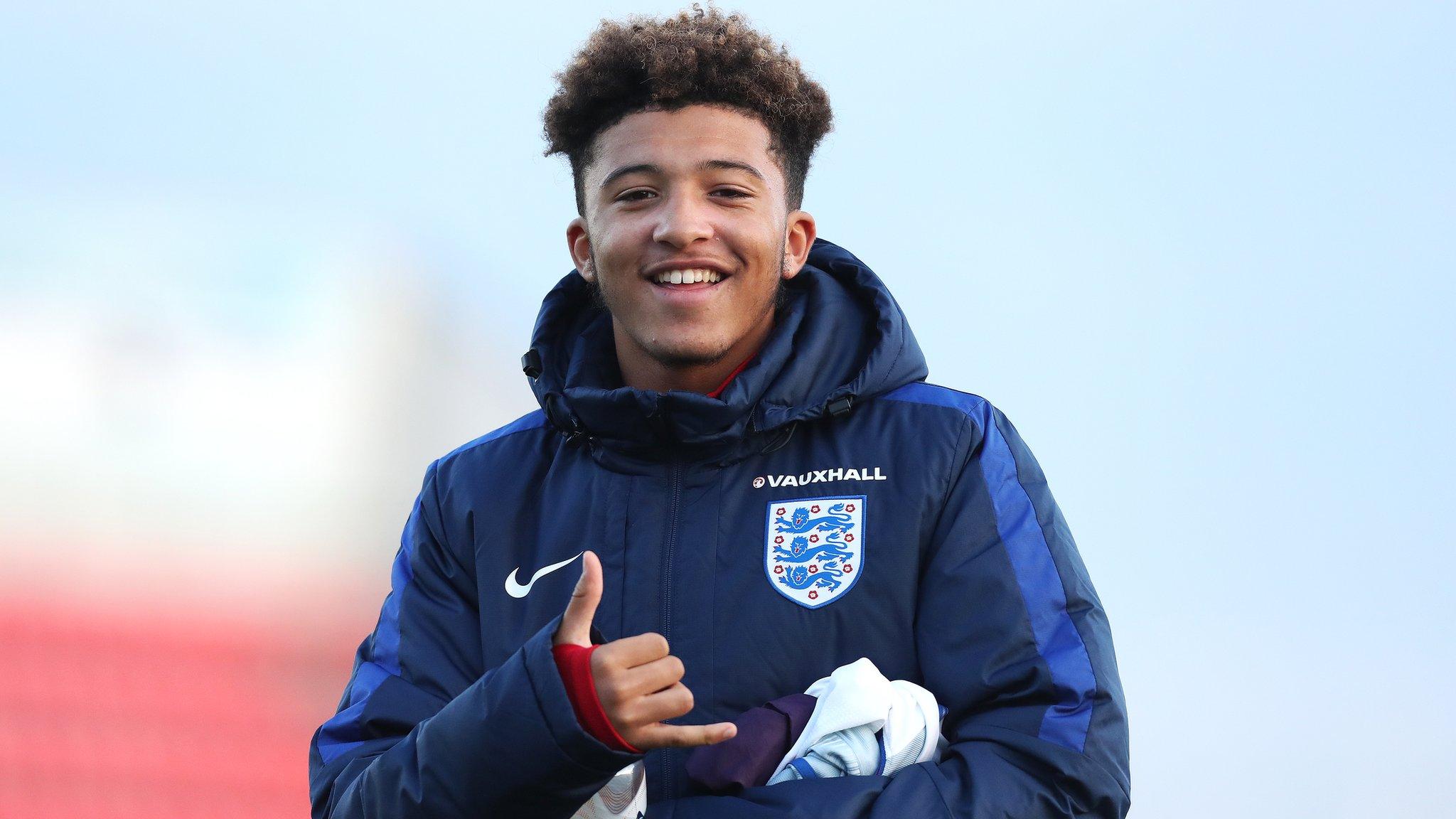
- Published21 June 2017
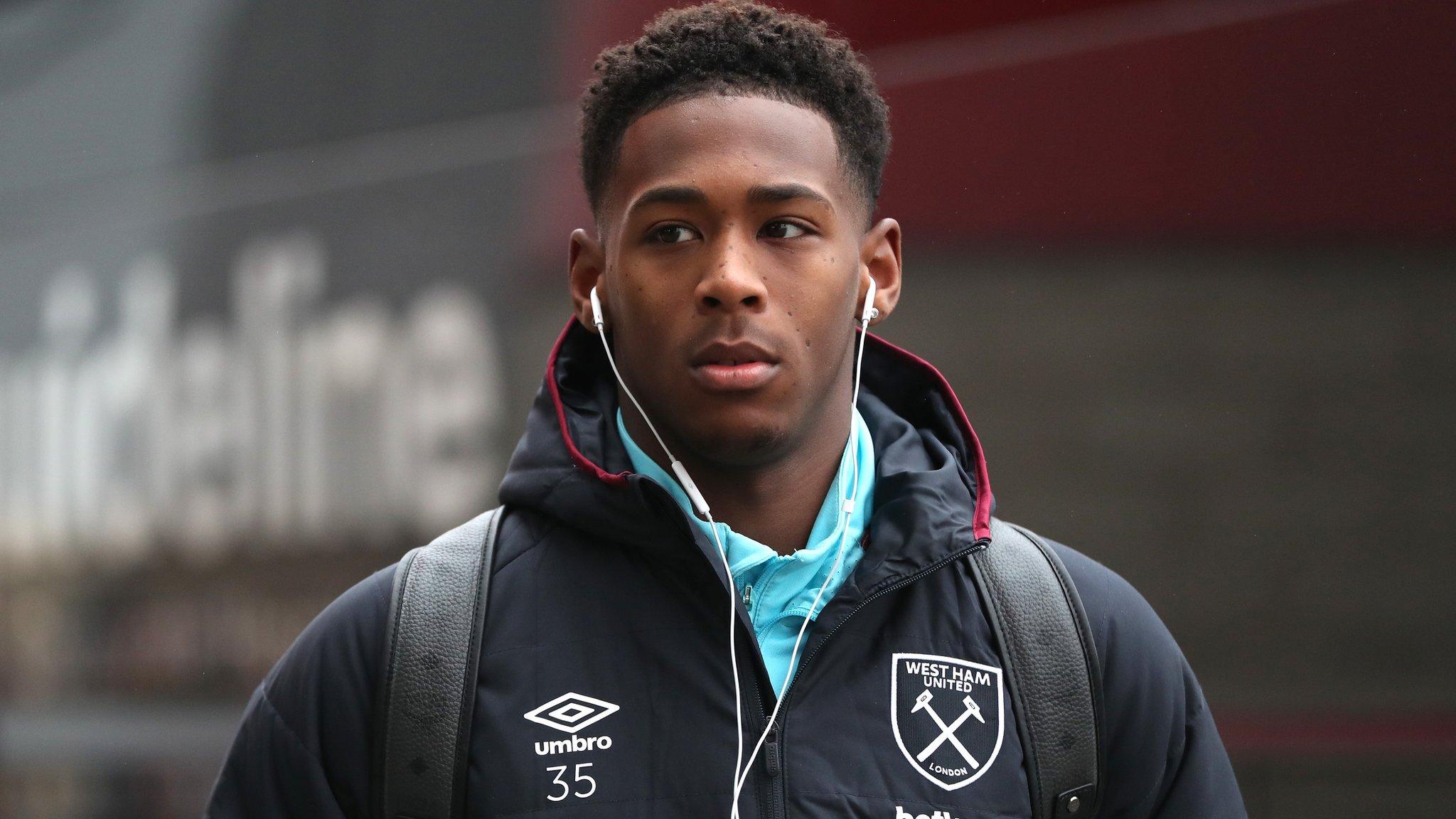
- Published30 June 2017
